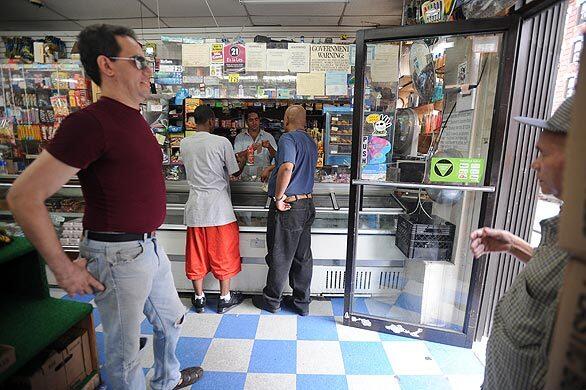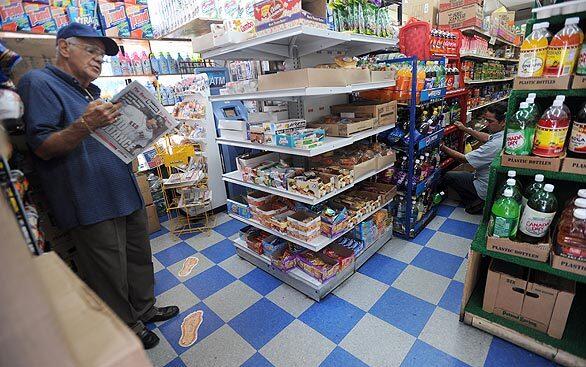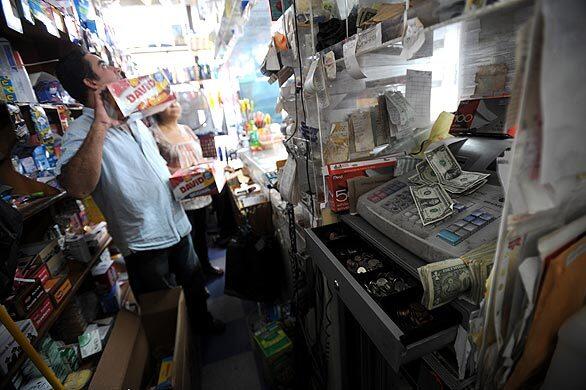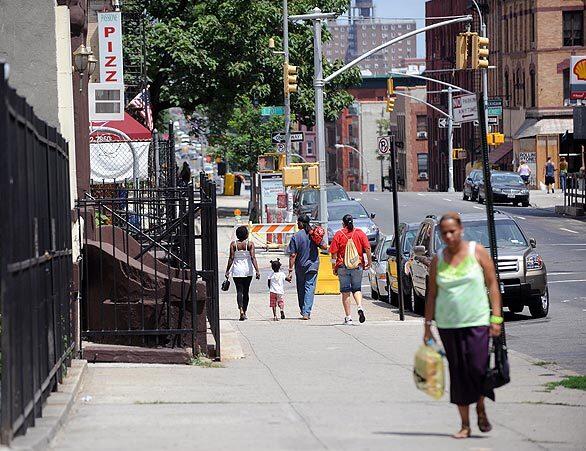Struggling bodegas

Julio Pimentel runs the Lexington Avenue Food and Deli Corp. bodega in East Harlem. He learned the business model from his father, who ran a similar store in the Dominican Republic. But sales aren’t keeping up with rent and food prices. If he falls too far behind, Pimentel says, I will have to close. I have no option. I lose all the money that I have. (Jennifer S. Altman / For The Times)

Pimentel’s bodega, slightly larger than a dine-in taco stand, fits three aisles of goods, including toilet paper, mango juice, cactus plants, bananas, plastic dolls and an eclectic assortment of other items. Having a nearby store with groceries is important in New York, where most don’t have cars; the rise in food prices has hit Pimentel’s neighborhood hard. (Jennifer S. Altman / For The Times)

Pimentel works behind a clear plastic window, serving customers through an opening. When New York cigarette taxes recently jumped, he stopped selling them, knowing few of his customers would pay $9 for a pack -- and refusing to break the law by selling single cigarettes, as many do. Also behind the counter are a few spare sets of keys belonging to neighborhood residents, in case they get locked out or a family member needs to get in. (Jennifer S. Altman / For The Times)

In this East Harlem neighborhood, where condos and outdoor cafes end and housing projects and check-cashing businesses begin, Julio Pimentel runs his bodega. But times are tough for the corner stores as a food crisis unfolds in New York’s low-income neighborhoods. (Jennifer S. Altman / For The Times)







